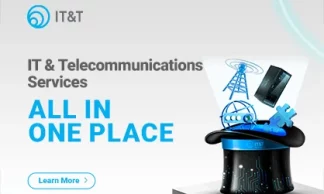Care coordination is considered a hallmark of patient-centred treatment and has been proven to improve patient satisfaction while minimising costs.
Defined as the process of deliberately organising patient care activities and sharing info among all the parties involved to improve patient support, care coordination is a critical element for improving health outcomes and patient experiences.
Many healthcare facilities have implemented care coordination strategies to facilitate the efficient delivery of health care services to people who need them.
For instance, people with chronic diseases often have more complex needs and often interact with multiple health care providers. Since care coordination is critical for these patients, adopting a patient-centric care strategy ensures their needs are known ahead of time and communicated at the right time and to the right people.
In this article, we'll share some ways in which you can optimise patient care coordination strategy to deliver the best results.
1. Implement tools for delivering care
Effective care coordination requires healthcare providers to embrace the appropriate healthcare technology to enable providers to work across health care settings.
Although not all healthcare facilities are financially prepared to invest heavily in IT infrastructure, adopting an effective health information technology system with native reporting capabilities is highly recommended.
When investing in healthcare technology like EHR software, it's vital to take system interoperability into account.
Note that care coordination can't be effective without data transparency and interoperable systems. So, when investing in healthcare technology like EHR software, it's vital to take system interoperability into account.
Why? When healthcare technology is not interoperable, communication between various stakeholders becomes difficult, which can be detrimental to a patient's care and experiences.
That said, a robust healthcare infrastructure should consist of an interoperable EHR alongside other systems for facilitating end-to-end care coordination workflow.
2. Leverage electronic messaging
Consistent communication is critical for any care coordination strategy to succeed.
To provide the best patient-centred care, providers must have access to detailed patient information, including but not limited to:
- Personal information
- Medical history
- Medical condition
- Information on primary care doctor
- Family history
However, care coordinators often encounter problems gathering this information because patients won't always remember everything in detail.
Using electronic messaging can remedy this problem. An electronic messaging platform can improve healthcare because it can remind employees via email/text and keep a copy of the message. Plus, electronic messages are easier to retrieve and store for future references.
3. Build a comprehensive, coordinated care plan for clients
Planning is critical when it comes to implementing a care coordination strategy.
Building a coordinated plan can serve as a blueprint for all the patient's care parties. A well-built coordinated care plan can include goals, resources, next steps for patients and other information necessary for clients to understand the treatment protocol.
Such a plan can enable providers to review a patient's progress over time and make assessments after each appointment. This creates a strong collaborative relationship and allows patients to take an active role in their own health.
4. Monitor, measure, act
As the wise will tell, what gets measured gets achieved.
To assess the effectiveness of a care coordination strategy, you'll need to measure its performance constantly. You could monitor various aspects of the care coordination programme, such as communication, coordination activities, etc., to assess its effectiveness.
What gets measured gets achieved.
Make sure you're constantly looking for ways to improve performance. In the same vein, be on the lookout for potential problems and fix them before they escalate into major issues.
Wrapping up
Improving healthcare means reaching higher levels of care coordination. This can easily be achieved by implementing feasible care coordination strategies geared towards the wellbeing of the patients. By following these tips, you'll stand a better chance at devising a patient care coordination strategy that drives results.





